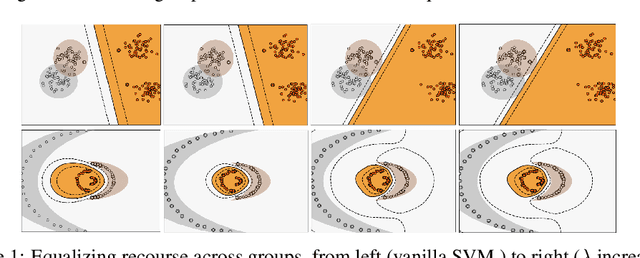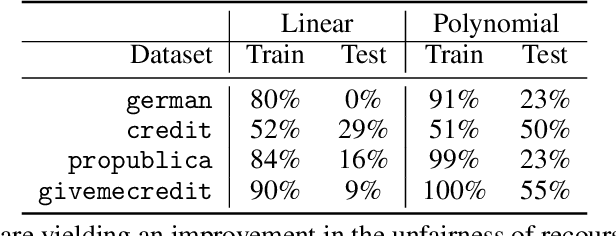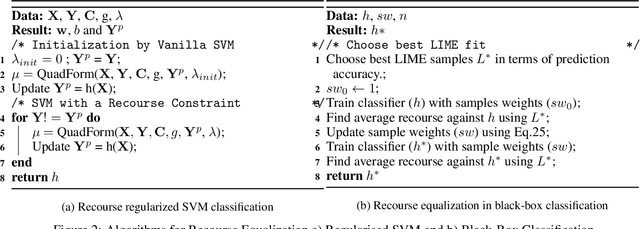Equalizing Recourse across Groups
Paper and Code
Sep 07, 2019



The rise in machine learning-assisted decision-making has led to concerns about the fairness of the decisions and techniques to mitigate problems of discrimination. If a negative decision is made about an individual (denying a loan, rejecting an application for housing, and so on) justice dictates that we be able to ask how we might change circumstances to get a favorable decision the next time. Moreover, the ability to change circumstances (a better education, improved credentials) should not be limited to only those with access to expensive resources. In other words, \emph{recourse} for negative decisions should be considered a desirable value that can be equalized across (demographically defined) groups. This paper describes how to build models that make accurate predictions while still ensuring that the penalties for a negative outcome do not disadvantage different groups disproportionately. We measure recourse as the distance of an individual from the decision boundary of a classifier. We then introduce a regularized objective to minimize the difference in recourse across groups. We explore linear settings and further extend recourse to non-linear settings as well as model-agnostic settings where the exact distance from boundary cannot be calculated. Our results show that we can successfully decrease the unfairness in recourse while maintaining classifier performance.
 Add to Chrome
Add to Chrome Add to Firefox
Add to Firefox Add to Edge
Add to Edge